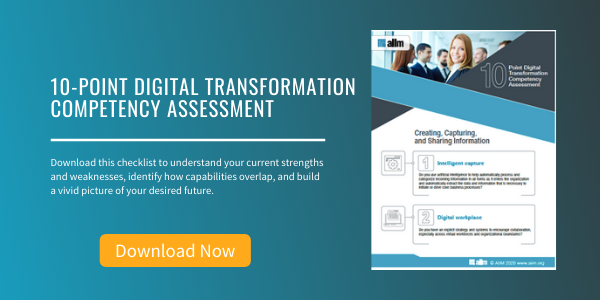
By: Jamie Grant on November 14th, 2018
The Emergence of the Elusive Digital Unicorn: How Digital Disruption Is Breeding New Roles within the Project and Business Landscape
Technology has had a profound impact on the business world. Simply walk into any business, no matter the size, and you will see the prolific adoption of technology. Digital project boards, virtual teams scattered across the globe, are all indicators of business reliance on this “fourth industrial revolution.” From industry data and anecdotal evidence, this tech utilization is on an exponential increase.
In 2016, Fujitsu conducted a survey of 1,180 C-suite executives. The survey stated that 98 % of them were experiencing the effects of “Digital Disruption.” Of the executives interviewed, 54 % believed that the most significant changes were still to come.
New technologies such as artificial intelligence (AI), the Internet of Things (IoT), and machine learning (ML) are impacting established industries such as the automotive and agriculture sectors. Mercedes Benz is using these technologies to drive their supply chains and ferry their customers in luxury.
European farmers are using AI to better monitor their cattle. Devices with sophisticated sensors will track the cow's movement. This data gathered will be tabulated and displayed to the farmer. Farmers are provided with data to their cows’ grazing, lying down, and other activities. This information leads to a better prediction of breeding times and helps lead preventative initiatives around general health care of the animal.
Technology Leading to the Emergence of Digital Unicorns
Within all organizations, new roles are emerging to accommodate and exploit these new opportunities. The Project Management Office, as the chief driver of change within the business, is feeling these effects as well. This can be seen in a greater demand for projects, as well as the emergence of new roles within its own domain.
These new roles have emerged like the fabled unicorn of myth and legend. Like the unicorn, they resemble traditional project roles. In the same way, unicorns resemble the average horse. They are a hybrid of established positions which have been re-packaged and defined to better fulfill their original mandates.
The horn of the unicorn, in the case of this article and these new project roles, is the technology that helps these roles flourish. The more these new roles utilize emerging technologies, the more they will be able to grow and succeed in their new callings. This article is the start of a series of articles on the emergence of these new roles and characteristics and the real-life application of technology that is forcing them to change.
The Roles We Will Be Reviewing
The hands-on project owner or sponsor, now product owner, is surfacing as a new role in the project landscape. No longer are project owners able to burden project teams, especially the project manager. The project manager has the sole responsibility for ensuring the project is a success. Using digital technology, they are expected to ensure that they make accurate predictions of the market's readiness to receive features they are calling their teams to focus on.
The Agile Project Manager versus the Traditional Project Manager
What are the skills and competencies that project managers need to develop that will prevent this role from being replaced by a machine? How is the project manager going to use Artificial intelligence to help deliver a better quality of service and leverage their unique human ability of emotional intelligence and unique leadership skills to guide their teams to greater heights of delivery?
The UX Designer vs the Traditional Graphic or Front-End Designer
Companies no longer want just a pretty design. They now want to see a design that has been driven by data and intensive research. One that has been evolved quickly and incrementally through continuous interaction with customers and future users over the lifecycle of the project.
The Quality Engineer vs the Tester
No longer just required to test and pick up bugs, these roles have evolved into highly skilled engineers. These engineers often have as much technical ability as the developers who produce the code in the first place. Automation and regression pack testing is the norm and no longer the exception.
The Future
Yes, these new roles are dotting the landscape like never before. I encourage you to join us on this journey, over the next couple of articles, as we start to learn to believe again in unicorns. We're going to begin to see a lot more of them in our future, some of us may even find us transitioning into these roles. These articles will help to prepare you for that change.
About Jamie Grant
Jamie is an IT & Website Administrator for Acuity Training (https://www.acuitytraining.co.uk/) - a UK-based company providing training on MS Project and project management.


